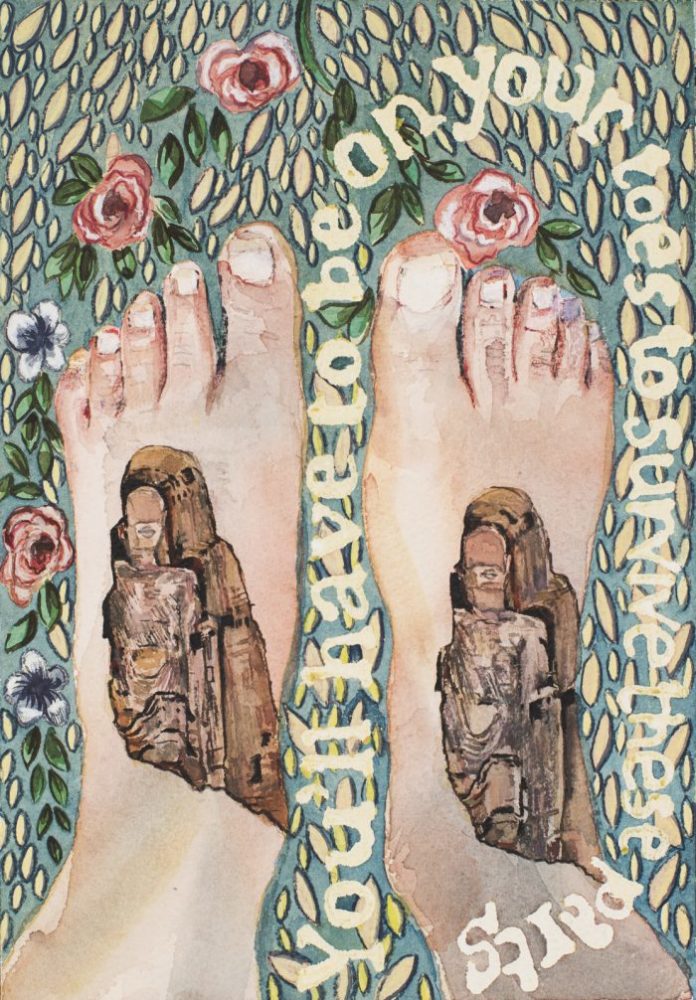CFP: The Anthropocene and Race Conference
Image credit: Jade Montserrat. ‘You’ll have to be on your toes to survive these parts.’
More info from IBAR https://ibaruclan.com/cfp-the-anthropocene-and-race-conference/
Feb 05 Friday
09h15-9h30
The University of Central Lancashire is hosting ‘The Anthropocene and Race’ conference in February 2021. The conference explores the connections among geology and culture, environment, ideology and inequality, memory and displacement, deep time and the far future.
Keynote addresses will be given by:
Professor Kei Miller, University of Exeter
Novelist, poet, author of Augustown and In Nearby Bushes
Forward Prize and OCM Bocas Prize winner
Syaman Rapongan
Novelist, essayist, Tao culture activist
China Times Prize for Literature and Golden Tripod Award winner
Taiwan Ocean Research Institute researcher
Dr Karen McCarthy Woolf, Fulbright All-Disciplines Scholar, UCLA
Ecocritic, poet, editor
Author of An Aviary of Small Birds and Seasonal Disturbances
We are witnessing climate crisis and mass extinction. The Anthropocene is the proposed name for a new geological epoch, created by human actions. The term encapsulates the total impact of human activities on Earth’s systems. As such, it is a crucial new development for the sciences, humanities and arts.
This conference brings together an international array of thinkers from geography, literature and culture.
The term Anthropocene remains controversial. Discussions among geologists are ongoing. Is the scale of ‘human’ activities really what is at stake here, or the activities of a few individuals, nations, corporations and governments? A subsistence farmer in Africa quite clearly does not have the same impact on the Earth as the chief executive of a coal mining company. Is the very idea of the Anthropocene western-centred – even racist?
The Anthropocene has been critiqued for being Eurocentric, human-focussed, capitalist and white-dominated. Karen Yusoff has challenged the Anthropocene’s ‘white geology’ for ignoring the enslaved and exploited black and brown bodies that the term obscures.
Environmental damage is a major driver of diaspora and new forms of exile, from climate change migration and the flight from polluted cities to ‘solastalgia’ (a feeling of distress caused by environmental damage close to your home.)
Topics will include:
*Theories of the Anthropocene, and what the concept means for different disciplines
*The Anthropocene and race across visual art, literature, music, social sciences and related narratives
*African Diasporan, Indigenous, Latinx, Asian and LBGTQ+ perspectives on the Anthropocene, across disciplines
*Ecological imperialism, globalisation and capitalism, the ‘Capitalocene’
*Multi-species communities of resilience and resistance, the ‘Chthulucene’
*Geology, geological narratives, and what they imply for human beings
*Boundaries and border-crossings, human and nonhuman; migration of people, animals and plants (forced or voluntary)
*Oceanic studies and wider Pacific cross-cultural currents
*Cultural narratives about extinction, climate change, oceanic impacts

